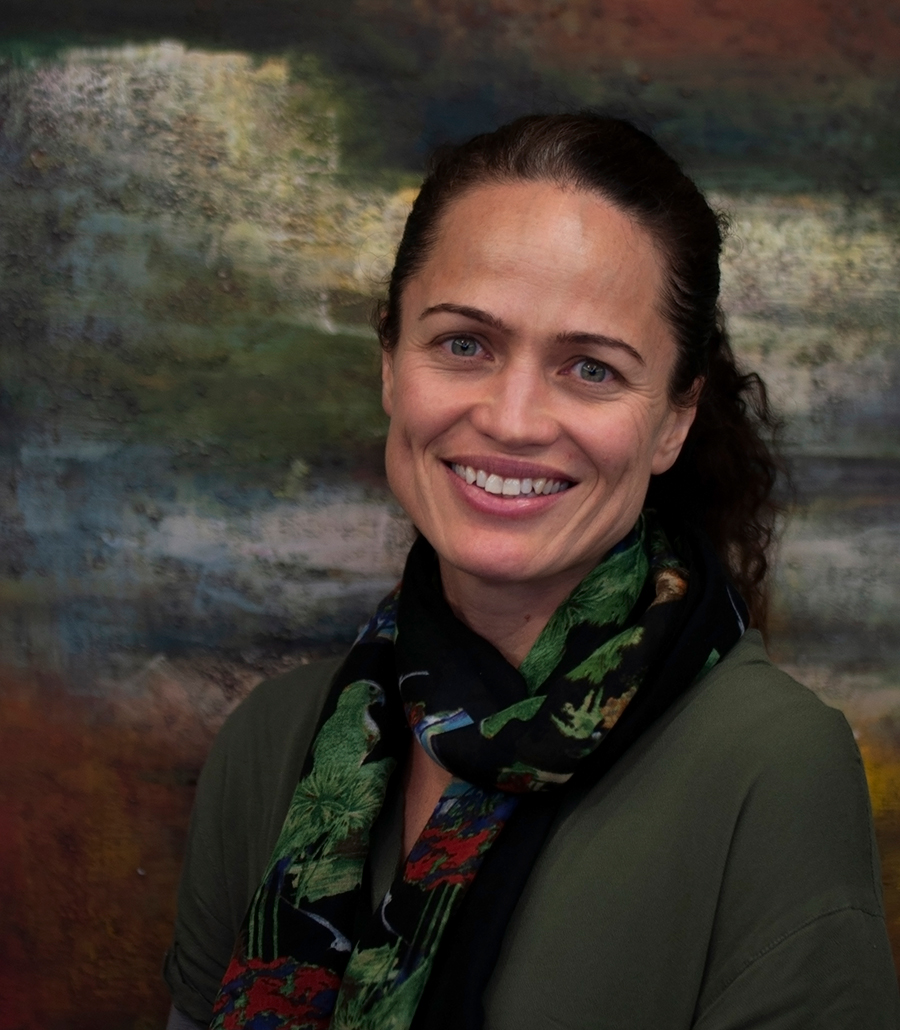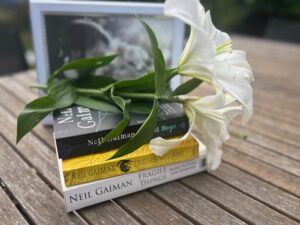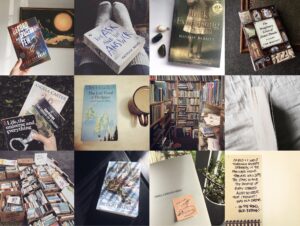I’m not a nautical person but that never stopped me taking to the sea. When I was a kid my stepfather had one of those tin boats that sat so low in the water the waves used to slosh over the side and mix together with the guts and blood of the fish, tainting the salt water pink around my ankles. I’d spew and spew over the side and vow never to go out again but for some reason I couldn’t help myself. I’d hear Dad getting ready outside the tent in the dark and I’d drag myself shivering with cold and climb up onto the wooden plank in the boat. Sitting there under my lifejacket, teeth clenched, we’d bump our way down the road in the darkness, diesel fumes and blood and vinyl choking my nostrils. I could already taste the vomit rising. It wasn’t Tangaroa that called me but the promise of time alone with my stepfather. I wanted him to be proud of me, his fishergirl, the Chunderguts.
I’m not a nautical person but I married a guy who loved the ocean. In the years we were together we owned kayaks and boats and all manner of things that float. I wanted to love the ocean like he did, because he did, and I thought it was that simple. I thought love was simple. The year before we separated, a fishing boat capsized while trying to cross the bar in the Kaipara. Eight of the ten men on board were killed and the skipper was blamed. On the news, boaties shook their heads in disgust and called him a cowboy. ‘You don’t mess with the Kaipara,’ locals said. When the force of the outgoing tide meets the muscle of Tāwhirimātea coming in, near vertical swells rise up against the massive underwater hills. There’s a channel through the bar, a safe place to cross, but it changes shape and location all the time, even in the space of a day. The coast guard on the T.V. that night looked grim in front of the debris. ‘They should have stayed out at sea and ridden the storm out,’ he said, shaking his head. ‘They would have been cold and hungry the next day, but they would have been alive. It was a coin-toss.’
I’m not a nautical person but I stayed another year after the boat crash in the Kaipara because I’m not the gambling sort. The next summer we crossed the Cook Straight on the Bluebridge Ferry to the Queen Charlotte Sounds. Te Moana o Raukawa ki Toronui. We booked a lodge accessible only by boat and stayed for ten days. I wanted to love it because he loved it and I thought love was that simple but I was already studying the bar. I was up early every morning watching the channel, the shape of the underwater hills, lightly discernible if you pay attention. On the second day of that holiday, a yacht sailed into the little bay and hitched up to a mooring. We instantly connected with the family on board, spending several days together, laughing, eating, swimming. It was easy. The kids were happy. For a moment I considered changing my mind. I remember thinking: I could stay out at sea, couldn’t I? Everyone is happy here. Can’t I be happy here? But I was seasick and tired, and the time had come to admit that I really just didn’t like the ocean that much. I wanted to feel the earth solid beneath my feet, I missed the smell of soil and rain and wet leaves. I longed to go home.
I’m not a nautical person but writing a book is a lot like I imagine sailing solo must be. Setting off in the sunshine with all the hope and anticipation in the world, tanks full of fresh water, crisp new sails, what can possibly go wrong?
Everything.
I was bailing water before I even hit the open ocean. It wasn’t just that I doubted my ability, it’s that I was uncertain where I was going. Was I writing memoir or essays? Was there a difference?
Luckily, I wasn’t the only one out there on the ocean. I let off a flare or two and always, without fail, the other Te Papa Tupu interns held up a torch in the darkness. I have this image of us setting off together nearly eight months ago, sails up, blue skies. We sat in the conference room in front of the flash pens and little booklets Huia Publishers provided feeling like minor celebrities. We had our photos taken standing in front of the hedge by the pool looking all authorish and then they told us about all the places we were going: from a stodgy conference room in Kilbirnie to book festivals and writer’s forums in Auckland, Sydney and then who knows where? We gawped and stuffed our faces with free food. All we had to do was finish writing our books, how hard could it be? We didn’t exactly put our hands in the middle and do a team-chant but we left our egos on the threadbare carpet of the Brentwood Hotel and promised to help each other out. Writing is complicated. It’s better not to be in competition with each other; there’s wind enough for all of us.
I’m not a nautical person but I don’t know if there’s a better metaphor for a mentor than the image of a lighthouse. They’re the ones who let you know where the rocks are so you don’t smash yourself up on them. The mentor is to the writer as the lighthouse is to the sailor. Intermittent but constant. He toka tū moana.
John Huria, whom I met at the first workshop, drew a little compass on a piece of paper, telling me that my writing is full of heart and strong on narrative, two things that he said seemed to come naturally to me. A writer can go a long way on a little bit of encouragement. When I’m feeling shitty about my work or stuck on something, I still look at that diagram. John pushed me to explore the aesthetic, the scope and breadth of metaphors that can straddle two intellectual worlds at the same time. He also introduced me to the phrase ‘pre-loved language,’ a gentle way of pointing out the clichés that had a habit of creeping into my work (‘John, I hope this whole nautical metaphor doesn’t sink like a stone’).
I’m grateful to Paula Morris whose close-reading of my work helped me to sift through my stories to find those that were worthwhile polishing. I know that other mentors like to work to strict deadlines but that wouldn’t have gone well for me. I was crossing the bar and my family needed me, my kids needed me. My manuscript couldn’t be the priority all the time and Paula understood this and gave me space to work at my own pace. Her feedback was always precise and articulate, and I know my work needed the kind of detailed critique she offered.
Diane Brown read my manuscript before anyone else more than two years ago. What I remember most from Diane’s mentorship is our friendship. I don’t think I could have handled a lot of harsh critique, back then. I needed to know just that my writing wasn’t terrible and that the stories were worthy of being told. Diane reassured me they were. In her emails she told me she’d crossed the bar too, years ago, and that it gets easier. Marriages fail, poetry falls out, blue skies return.
Not all our mentors are hand-picked. Some of them find us. Anahera Gildea is like that. I was out there in the ocean headed for darkness and I could see where everyone else was going but I just wasn’t convinced that was where I needed to be. I was looking for others who write and sound like I do. Anahera was one of the first. She’s chartered these waters before me.
I don’t know if it’s because the stories I’m writing are true or because of my anxiety, but fear has been a constant since I started publishing. One of the first personal stories I ever shared was about my father and it was meant to be a mihi to him, but it was my mother who was hurt. Three days before Christmas we spoke on the phone and she said: ‘you write beautifully, Nadine, but you tell lies.’
It cut me up. I never wanted to weaponise my words. I wanted to uncover and make things known, but it’s not about settling scores. It’s about breathing. It’s about holding hard things and good things in my hands at the same time. It’s the opposite of telling lies. The manuscript I sent to Huia Publishers six weeks ago is around 55,000 words and before I hit submit, I asked myself: Is this beautiful, is this true?
The trouble is, some truths cannot be made beautiful, no matter how many ways we rewrite the story. At some point, we have to let go of how our words will be received. We can’t control how the reader will interpret what we’ve said. This lack of control is awful. It’s more awful when you’re Māori. We write with authority about our lives and with all the authenticity we can muster but people will always pick it apart and mine our words for truth. None more so than those closest to us. These are the waves; this is the sense of drowning. This is when I heave my guts over the side of the tinny boat, not a yacht at all, who was a kidding thinking I could sail?
On days like this, mentors throw out just enough light to help you stay on course. One mentor isn’t enough. The ocean is treacherous. It’s not just about where you’re going, it’s about why you want to go there in the first place. If you’re a writer and you’ve got something to say I think you need to know why you want to say it, at least before you make landfall.
There are other mentors, too many to name, but especially: Karlo Mila, Annette Morehu, Alex Keeble, Cassandra Barnett, Leonie Hayden, Stacey Morrison, Victor Rodger, Kennedy Warne, Tapu Misa, Whiti Hereaka.
And of course, my kids, who don’t exactly understand all of this, but support me with unwavering faith: Bobbie: See her brave Liam: Have you finished your manuscript yet? Cormac: Writing a book is like having a baby, you can’t stop pushing half way through.
I’m not a nautical person but lately I have begun to feel like I’m arriving. I can see the outline of the hills ahead of me and the water is shallow enough to make out the little ridges in the sand beneath. It’s calm and quiet and I know the other Te Papa Tupu interns are already there on the beach. In a few days’ time we will find out who among us has done enough to earn a contract for publication then we’re all off to the Sydney, dragging our suitcases behind us and striking poses that look authorish. It makes me want to laugh and cry at the same time. It’s terrible to want something and also not want it. It’s terrible to want to go out in the boat with your Dad even though you know it’s going to make you sick. Or to want to leave your marriage when you know what you’re gambling with. It’s terrible to want the things you want.
I’m not a nautical person but there are some days when I feel good out on the water. It’s a coin toss. It really is.





